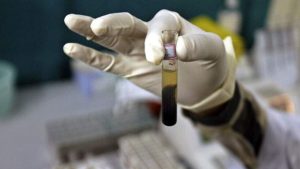Like many journalists, I rely on scientific research. And, as a general rule, I place more trust in research conducted by universities, especially those completed on the taxpayer’s dime and part of a peer-review process.
I understand, as I hope most consumers do, research or studies paid for by interests associated with the topic — for instance, the link between tobacco use and cancer funded by tobacco company interests — can be skewed or presented to the public in unethical ways.
Following the actions of an AIDS research team at Iowa State University, however, I’m forced to reconsider my standards of trust.
Dr. Dong Pyou-Han, now indicted by the federal government on four counts of making false statements and expected to be arraigned next week, is a former research assistant professor within the ISU Department of Biomedical Sciences. He resigned in disgrace last October after admitting to purposefully faking research related to a possible AIDS vaccine. Specifically, the researcher added human blood to draws from the rabbit control group to simulate the appearance of antibodies.

The tainted samples were shipped as part of the initial peer-review at Duke University, and tests run on those samples produced similar results. Later, however, the reviewers could not duplicate results on in-house samples, and ISU officials were notified in January 2013 of tampering suspicions. Han was not identified as the likely suspect until August, and the team faced no discipline from the university when Han resigned on Oct. 4.
The research team, led by Dr. Michael Cho, was recruited from Case Western Reserve University in Ohio in 2009. While in Ohio, the team had been receiving federal research grants, however, the fraudulent reports released under the ISU moniker were “flabbergasting” and spurred millions more. ISU officials ballpark that the team received about $19 million total, with roughly $10 million coming in the wake of the faked results.
Han has entered into a Voluntary Exclusion Agreement with the government, which places him under a three-year ban from participating in federally-funded research projects.
As I’ve previously written, federal research funding is scarce and, as such, highly competitive. To a certain extent that fact fuels my outrage at the brazen misconduct at ISU.
Han does face 20 years of jail time for his actions and, to its credit, ISU has already agreed to return about $495,000 of the research funding — roughly the amount of Han’s salary. But we’ve yet to hear from ISU or other AAU member universities on how this discovery of fraud has translated to higher standards of accountability.
There’s no doubt the ongoing work by Cho’s team has been tainted, and should now be held to a higher standard. But team leadership, the individuals tasked with monitoring the professors and their research, have relatively gone unscathed.
ISU is sporting the bruises of the incident and will probably be marred some more as the criminal proceedings are publicized. Here’s hoping the $9.5 million of ill-gotten taxpayer gains will provide comfort, even if it is served alongside deflated public trust.
This column by Lynda Waddington originally published in The Gazette on June 28, 2014. Photo credit: Rupak De Chowduri/Reuters
